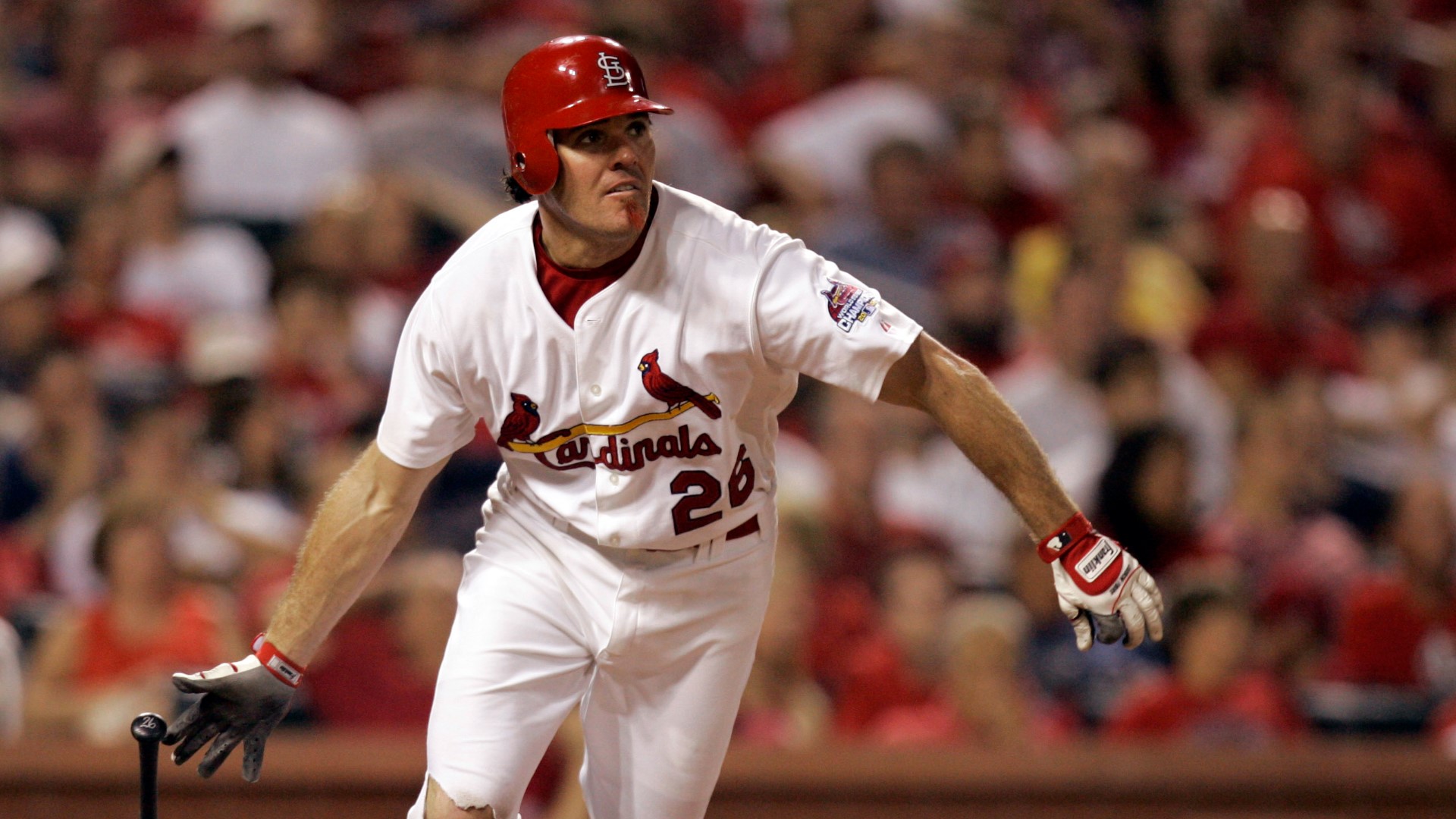MORRIS, Ill. — About an hour outside of Chicago lies Morris, Illinois, a quiet town of about 14,000.
Perhaps the most famous name there is labeled on a billboard: Spiezio's. And under the name on the sign, it reads furniture, appliances and television.
But for many that live outside of Morris, that name means baseball.
Scott Spiezio's whole life was baseball. His father, Ed, played on three pennant winners and was a World Series champion with the St. Louis Cardinals in the 1960s.
The elder Spiezio knew at a young age that his son had skills.
"I made him a priority. As he came along, I can see at 2, 3 (and) 4 years old, he is getting bigger, getting stronger, he's got good hand-eye coordination, and by the time he was 8, it was unbelievable," Ed Spiezio said.
"When I was younger, we would hit in the front yard here, with tennis balls. Then I started getting to the point where I could hit them to the neighbor's houses across the street," Scott said.
At Morris Community High School, Scott was the MVP of the conference and had his jersey retired.
Scott continued to shine when he reached the major leagues, making a name for himself with the Los Angeles Angels.
One of the biggest moments of his career came in 2002. The team was facing elimination, down 5-0 in Game 6 of the World Series, when Scott came to the plate.
He hit a three-run homer off Felix Rodriguez to pull his team within two runs. The team went on to win 6-5 to force a Game 7.
"And it felt like I was this high off the ground, I am running the bases and it was like all those times in the backyard with my dad," Scott said.
The next night, the team and Scott won the 2002 World Series.
But his career didn't end there. The bigger the moment, the better he was.
In 2006 with the St. Louis Cardinals, the team clinched the division on Scott's hit against the Milwaukee Brewers.
A few weeks later, during Game 2 of the National League Championship Series, his two-run triple was the key hit in a crucial game against the New York Mets.
"And to have that feeling and to see the ball zooming off your bat, there is nothing like it," Scott said. He quickly became a cult hero in the baseball world.
But the amazing thing about Scott's productiveness and popularity is he was becoming an addict.
"In 2007 was when I started using cocaine, and I was always trying to balance. I was constantly trying to balance being able to play and survive. At that point in 2007, I basically became an addict and an alcoholic all at once," he said.
"If I didn't drink, I would get the shakes. If I didn't use it, I would get tired," Scott said. But he kept hitting.
"The next night, I hit another home run, and then I didn't do it. The next night and went 0 for 4 with four strikeouts, and I did a line or two—maybe four lines—which are all too many. But the problem was that I began thinking it was a superstition thing," Scott said.
In all, it was a 13-year addiction with 12 trips to various rehabilitation clinics.
And there was that incident in Irvine, California. Scott received six misdemeanor charges after crashing his car.
"I think I probably had a concussion, and I went to my condo and couldn't get in. (I) went to a friend's house and started throwing up because of the concussion. He got mad at me, and I think I hit him in the eye," he said.
About five years ago, Scott met a very important person in his life who helped him in his fight against addiction: Tania Boyer, a woman from his hometown.
On April 5, 2018, she thought she may have lost her friend.
"I watched him turn yellow from head to toe in a matter of 36 hours. I got him to the hospital, and if he wouldn't have, I don't know if he would be here today," Boyer said.
During it all, Ed Spiezio had gone to a counselor to find out how to deal with an addict.
"It's so hard to do, but as the teacher kept saying, 'It is the hardest thing you will ever have to do, and if you don't do this he will die.' That's the way he put it: 'If you don't do it or anyone around you do it, you'll have a bad ending to this,'" he said.
Scott did not have a bad ending. Instead, he hasn't had a drink in 1,683 days.
He teaches the game of baseball to kids at his batting cage just like his dad did with him. And when he's not celebrating with a student, he is celebrating with the gospel as part of a therapy group.
Scott is not afraid to tell his story to help others. He recently shared his story with the Fellowship of Christian Athletes in St. Louis.
"I'm doing great, I think someone is looking out for me," he said.
"He did go through this for a reason, and his reason is to try and help other people to keep them from going through what he went through or help them see they can get beyond it, and you can have a positive impact and positive role in life," Boyer said.
"In making the major leagues, it's a one in 1 million chance ... starring in a World Series, one in 10 million. But what you're doing right now is tougher than that," Ed said.

